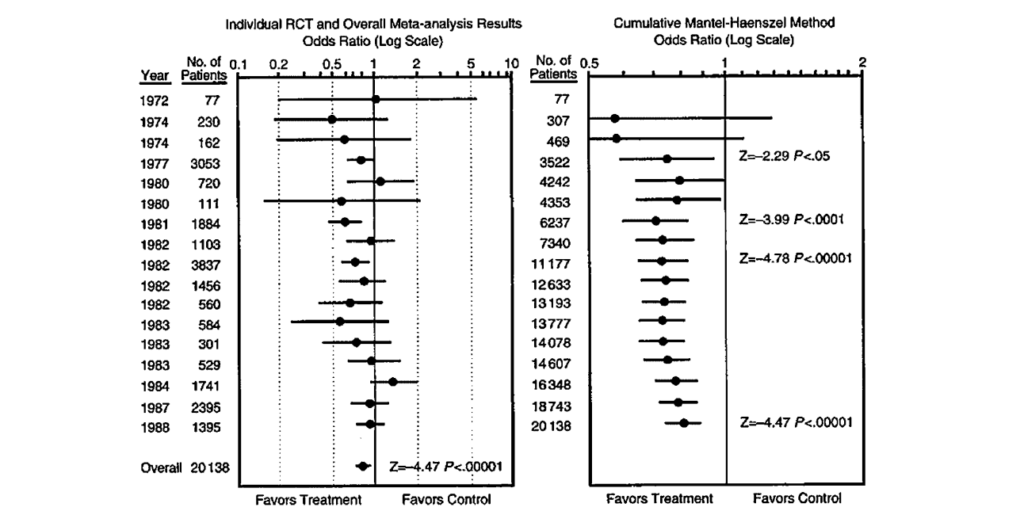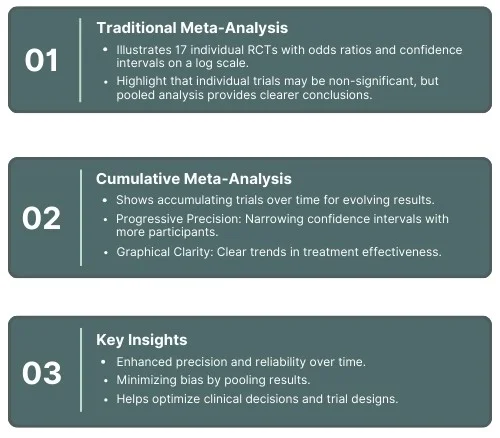Cumulative meta-analysis is a powerful method used to analyze and interpret the evolving results of multiple randomized controlled trials (RCTs) over time.
Cumulative Meta-Analysis: A Key Tool for Evidence Synthesis


Dr.Nancy | Research design and Mixed Methods Research.
19 Jan, 2025

Dr.Nancy | Research design and Mixed Methods Research. 19 Jan, 2025
Introduction
Cumulative meta-analysis is a powerful method used to analyze and interpret the evolving results of multiple randomized controlled trials (RCTs) over time. The figure illustrates two methods of presenting cumulative meta-analysis results for assessing the effectiveness of oral β-blockers in reducing mortality after myocardial infarction [1].
Traditional Meta-Analysis (Left Panel)
The left panel depicts the results of 17 individual RCTs, showcasing the odds ratio for each trial and their respective confidence intervals on a log scale. While many trials appear to have statistically non-significant outcomes individually, the pooled analysis provides a clearer and more meaningful estimate of the treatment’s effectiveness [3].

Begin Your Clinical Research Journey With Us!
Begin Your Clinical Research Journey With Us!
Cumulative Meta-Analysis (Right Panel)
The right panel presents a cumulative meta-analysis, where the data from successive trials are combined to provide an updated summary effect. Key features include:
- Progressive Precision: As the number of participants increases over time, the confidence intervals narrow, offering more robust and reliable results.
- Early Statistical Significance: By 1977, the pooled estimate demonstrated statistical significance (Z = −2.29, p < 0.05), a finding that remains consistent in subsequent updates (e.g., Z = −4.47, p < 0.0001).
- Graphical Clarity: The adjusted scale improves the clarity of confidence intervals, making it easier to interpret trends in treatment effectiveness [1].

Figure 1: Cumulative Meta-Analysis: A Key Tool for Evidence Synthesis
Insights for Researchers
We offer the expertise, knowledge, and comprehensive support your Clinical research and publication needs.
We offer the expertise, knowledge, and comprehensive support your Clinical research and publication needs.
How Pubrica Academy Helps Researchers
At Pubrica Academy, we provide comprehensive support for systematic reviews and meta-analyses, including:
- Data Synthesis: Our experts assist in pooling and analyzing trial data for cumulative meta-analysis.
- Visualization: We design clear and impactful figures like the ones shown, tailored to enhance the readability and impact of your research.
- Manuscript Preparation: We ensure your work meets the highest standards for journal submission, with a focus on statistical rigor and presentation.
